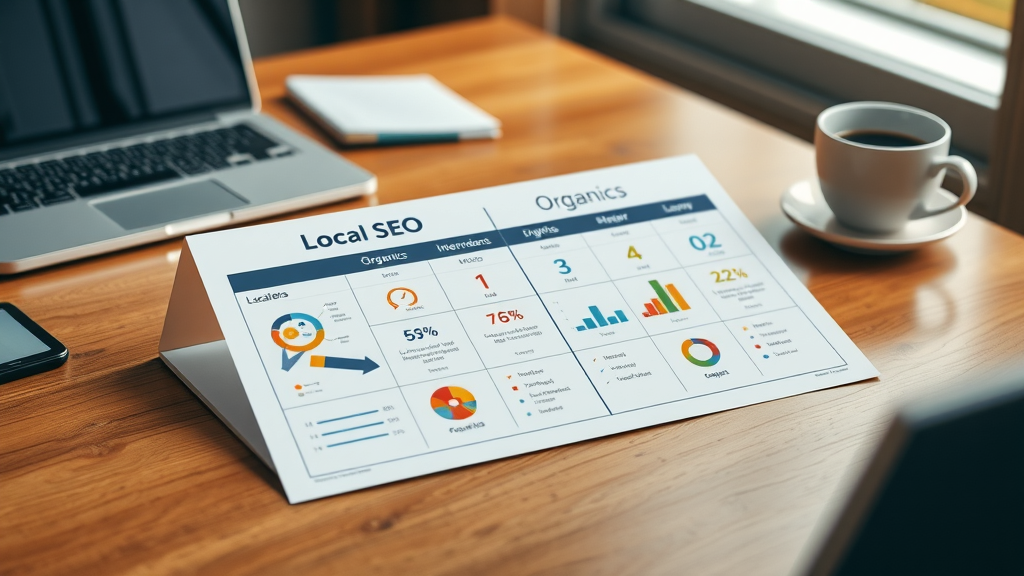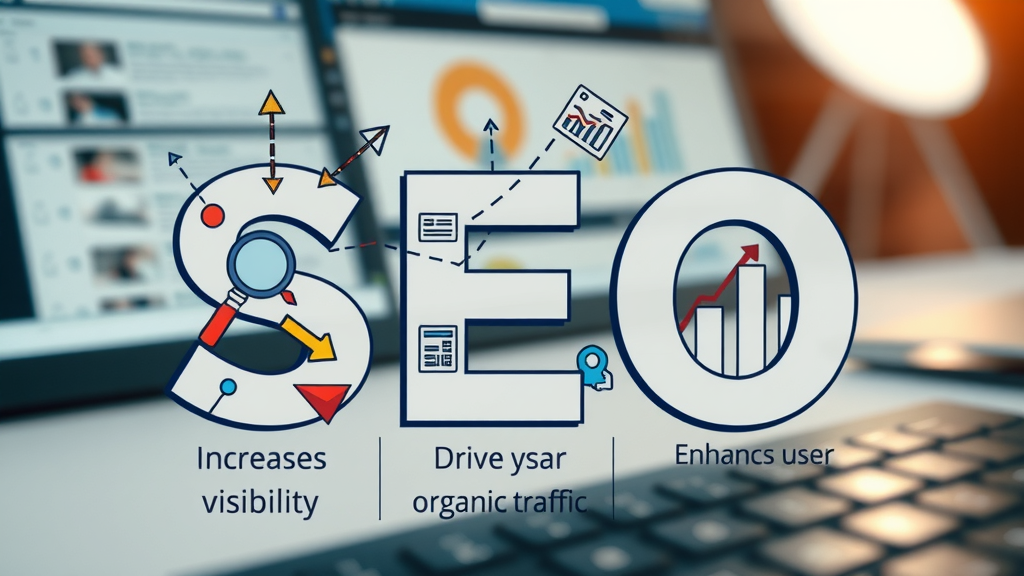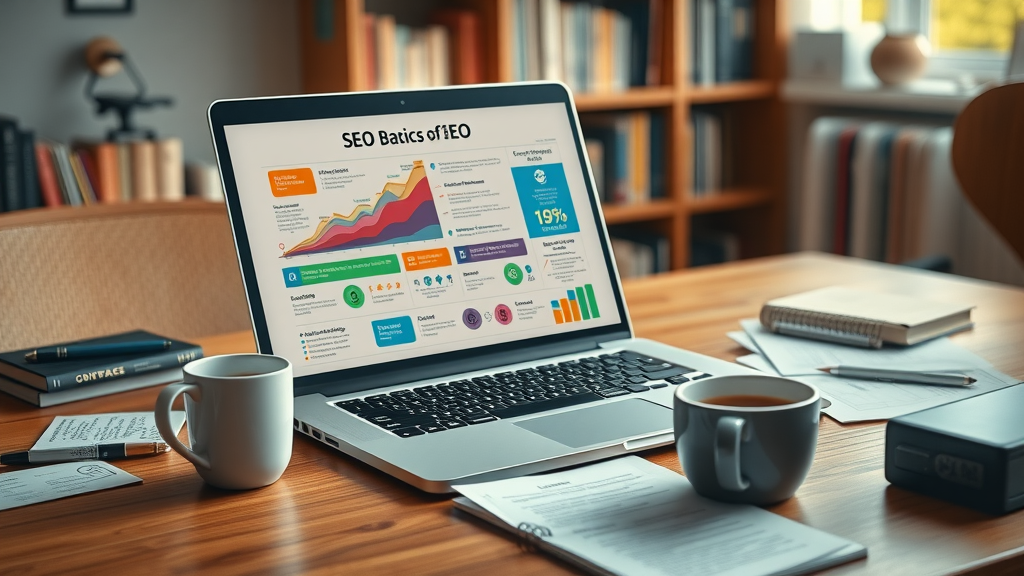In a digital landscape where visibility is everything, the debate of local SEO vs organic SEO has never been more crucial for businesses aiming to thrive. Are you targeting customers in your neighborhood or aiming for a broader audience? Mastering these strategies can be the game-changer your business needs to stand out. This article, “Local SEO vs Organic SEO: Which Will Skyrocket Your Business Today?” will unravel the nuances of each approach, empowering you with the knowledge to make informed decisions that can elevate your online presence and drive growth.
What is Local SEO?
Local SEO focuses on optimizing a business’s online presence to attract more customers from relevant local searches. This strategy is particularly effective for brick-and-mortar businesses that rely on local clientele. Local SEO practices include optimizing Google My Business profiles, managing reviews, and utilizing local keywords.
Key Features of Local SEO
- Google My Business Optimization: Ensures your business details are accurate and up-to-date on Google Maps and search results.
- Local Keywords: Involves using location-based keywords in content.
- Citations: Listings on online directories that help improve local search rankings.
Importance of Local SEO for Businesses
The advantages of prioritizing local SEO cannot be overstated. Businesses that optimize for local search can expect higher foot traffic and engagement from potential customers who are actively searching for services in their vicinity.
| Feature | Local SEO | Organic SEO |
|---|---|---|
| Target Audience | Local customers | Broader audience |
| Ranking Focus | Local search results | General search results |
| Tools | Google My Business | SEO tools (e.g., Ahrefs) |

What is Organic SEO?
Organic SEO refers to the process of optimizing a website to improve its ranking in the search engine results pages (SERPs) through unpaid methods. Unlike local SEO, organic SEO targets a wider audience and focuses on generating traffic from various geographical locations.
Key Features of Organic SEO
- Content Creation: High-quality, valuable content that answers user queries.
- Backlink Building: Gaining links from reputable sites to improve domain authority.
- Keyword Optimization: Researching and integrating keywords relevant to the audience.
Importance of Organic SEO for Businesses
Organic SEO is essential for long-term online visibility. By improving your website’s ranking through effective SEO strategies, you can attract significant traffic over time, ultimately increasing conversions and sales.
| Feature | Organic SEO | Local SEO |
|---|---|---|
| Focus | Broader audience | Local customers |
| Time to Results | Long-term | Short-term |
| Cost | Generally lower ROI | Potential high ROI |

Local SEO vs Organic SEO: Key Differences
Understanding the differences between local SEO vs organic SEO is crucial for tailoring your marketing efforts effectively.
Target Audience and Intent
- Local SEO: Primarily targets customers searching for services in their geographical area, often using phrases that include city names or terms like “near me.”
- Organic SEO: Aims at a broader audience without a specific location focus, seeking general search terms.
Geographical Focus
- Local SEO: Highly focused on attracting customers within a specific location or zip code.
- Organic SEO: Targets users globally, regardless of their location.

Ranking Factors
Both local and organic SEO rely on different ranking factors to achieve higher placements in search results.
Local Pack vs Organic Listings
- Local Pack: Displays top local businesses based on proximity and relevance to the search query.
- Organic Listings: Based on various factors, including content quality, backlinks, and overall SEO practices.
Benefits of Local SEO
Increased Visibility for Local Searches
Local SEO ensures your business appears prominently in local search results, making it easier for nearby customers to find you.
Community Engagement and Trust
Having a strong local presence through SEO helps build trust within the community, leading to increased customer loyalty.
Improved Conversion Rates
Local SEO often results in higher conversion rates as local customers are typically more ready to make a purchase.
| Benefit | Local SEO | Organic SEO |
|---|---|---|
| Visibility | High | Moderate to High |
| Trust | Strong | Varies |
| Conversion Rates | Higher | Moderate |

Benefits of Organic SEO
Long-term Traffic Growth
Organic SEO strategies are designed to provide sustainable traffic growth over time, ultimately leading to increased sales.
Enhanced Brand Awareness
Consistent high rankings boost brand visibility, making your business a recognizable entity in your industry.
Cost Efficiency over Time
While organic SEO may require upfront investment, it often results in lower costs and higher returns over time compared to paid advertising.
| Benefit | Organic SEO | Local SEO |
|---|---|---|
| Traffic Growth | Steady | Variable |
| Brand Awareness | High | Moderate |
| Cost Efficiency | High in the long run | Moderate |

Combining Local SEO and Organic SEO
Strategic Approaches
Combining both local SEO and organic SEO strategies can yield the best results for businesses, helping them to capture both local and broader audiences.
Creating Local Landing Pages
Developing localized landing pages can enhance visibility for specific searches while still utilizing organic SEO practices to improve overall traffic.

Key Strategies for Local SEO and Organic SEO
Keyword Research and Targeting
Conducting thorough keyword research is essential for both local and organic SEO. Understanding the terms your target audience is searching for can help tailor content effectively.
Content Development and Quality
Creating high-quality, valuable content is paramount. Engaging content not only attracts users but also encourages backlinks from other websites.
Link Building Strategies
Building a robust backlink profile is crucial for both local and organic SEO, as it helps improve domain authority and search engine rankings.
| Strategy | Local SEO | Organic SEO |
|---|---|---|
| Keyword Targeting | Local Keywords | Broader Keywords |
| Content Quality | High | Critical |
| Link Building | Relevant local sites | Reputable sites |

Local SEO Best Practices
Optimizing Google My Business
Claiming and optimizing your Google My Business profile is crucial for local SEO. Ensure all information is accurate and engaging.
Managing Online Reviews
Encourage satisfied customers to leave positive reviews, as they play a significant role in building trust and improving visibility.
Local Listings and Citations
Ensure your business is listed accurately on various online directories to enhance local search rankings.
Organic SEO Best Practices
On-Page SEO Techniques
Implement on-page SEO techniques, including proper use of meta tags, headers, and content optimization, to improve search visibility.
Technical SEO Considerations
Strong technical SEO practices, such as optimizing site speed and mobile responsiveness, are vital for improving user experience.
User Experience and Engagement
Creating a seamless user experience encourages visitors to stay longer on your site, which can positively impact rankings.
Comparative Analysis Table
| Aspect | Local SEO | Organic SEO |
|---|---|---|
| Target Audience | Local Customers | Broader Audience |
| Ranking Factors | Local Listings | Content Quality |
| Time Frame | Short-term | Long-term |
| Cost | Moderate to High | Generally Lower |

Conclusion and Key Takeaways
Final Thoughts on Local SEO vs Organic SEO
The choice between local SEO vs organic SEO ultimately depends on your business goals. If you are looking to attract customers in your immediate vicinity, local SEO is essential. However, for broad visibility and long-term growth, organic SEO is crucial.
Emphasizing a Balanced Approach
Combining both strategies allows businesses to reach diverse audiences while maximizing visibility and conversions.
Key Takeaways:
- Know Your Audience: Understand whether to target local or broader audiences.
- Optimize for Both: Use local SEO for immediate visibility and organic SEO for long-term growth.
- Create Quality Content: High-quality content is vital for both strategies.
- Utilize Tools: Leverage tools like Google My Business and SEO analytics.
- Monitor Performance: Regularly assess your SEO efforts and adjust strategies accordingly.

This article has provided a comprehensive overview of local SEO vs organic SEO strategies. By understanding and implementing the right techniques, businesses can significantly enhance their online visibility and drive growth.
 Add Row
Add Row  Add
Add 



Write A Comment